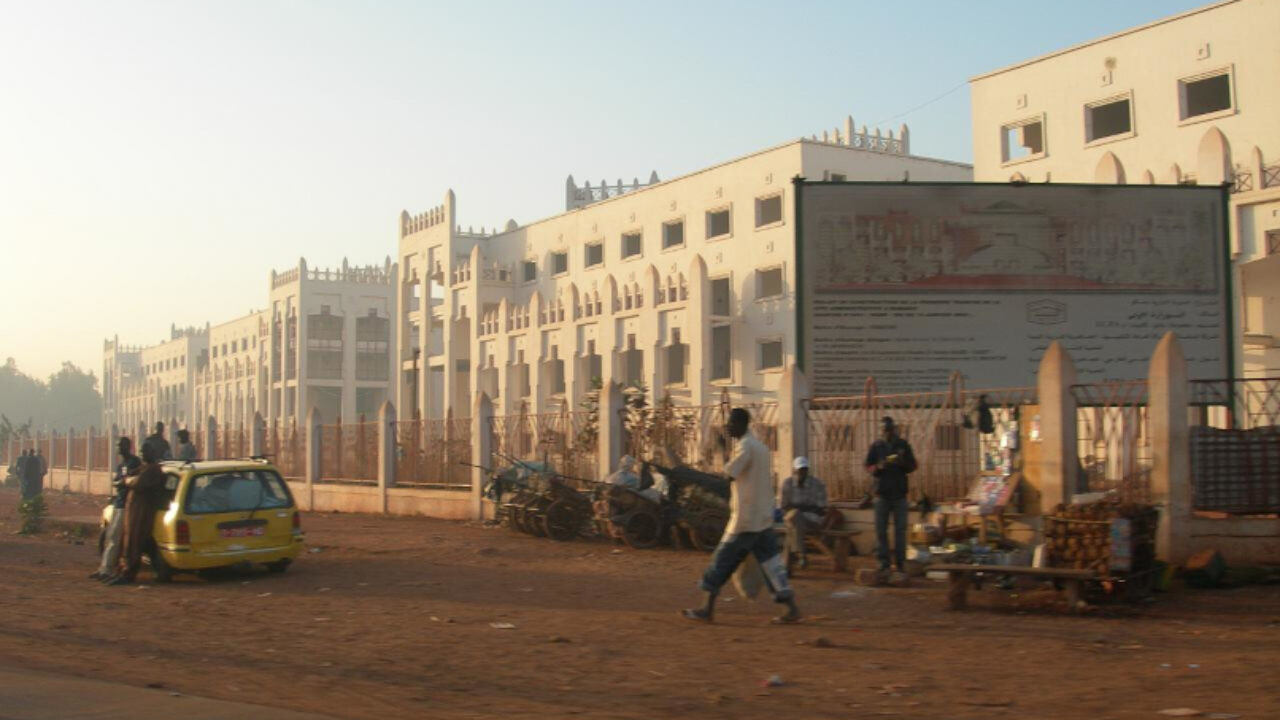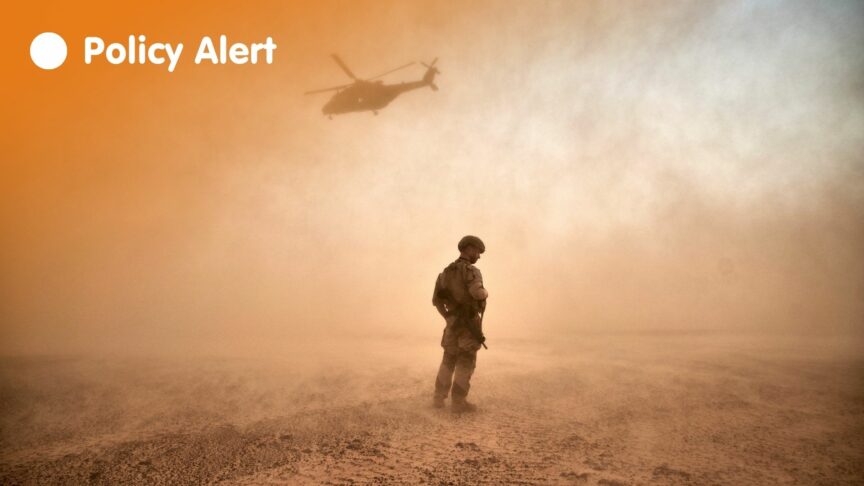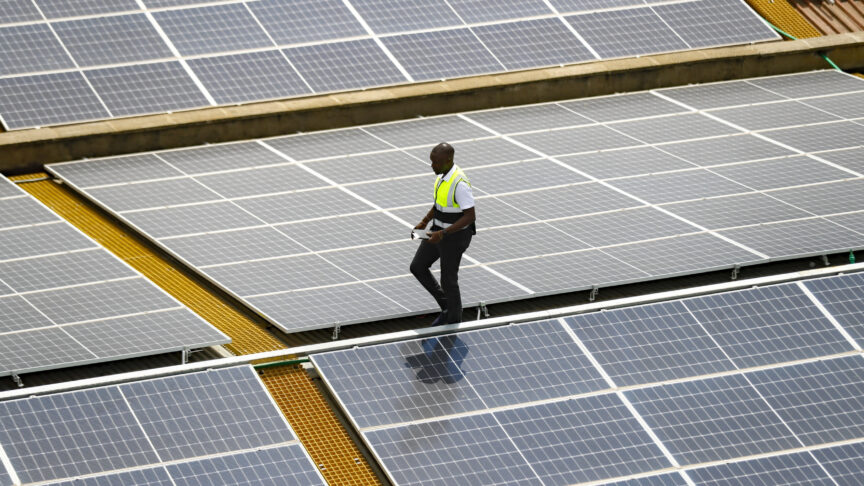Mali’s transitional government: The dangers of the junta clinging to power
There are promising signs in Mali’s new government, but the international community must take action now to ensure the military junta cedes power to civilians.
Nearly six weeks since military figures ousted Mali’s president, Ibrahim Boubacar Keita, the country has finally established the main mechanisms of a transitional government. In a ceremony on 25 September attended by national and foreign dignitaries, the transitional president, Bah N’Daw, was sworn into office for a period of 18 months. Two days later, N’Daw signed a written communiqué naming former diplomat and minister of foreign affairs Moctar Ouane as Mali’s transitional prime minister.
Among the dignitaries at Friday’s ceremony were representatives of the Economic Community of West African States (ECOWAS), which since the coup has placed pressure on the military junta to appoint civilian transitional leaders and move toward a negotiated path to new elections and civilian rule. The recent appointments may thus satisfy the basic conditions for lifting the sanctions that ECOWAS imposed after the military coup, although that decision may yet hinge on further steps that the junta has yet to take. But the means by which N’Daw and Ouane were chosen, their backgrounds, and the structures of the transition itself all suggest that the junta – the National Committee for the Salvation of the People (CNSP in French) – is not ready to cede power. There is a great risk that opposition demands for reform and inclusive representation may yet go unsatisfied.
At the same ceremony where N’Daw swore his oath, the CNSP president, Colonel Assimi Goïta, was also sworn in as the transitional vice-president; at the time, reports based on the then-unpublished transitional charter said he would have authority not just over matters of defence and security but also responsibility for the “refoundation of the state”. Last week the junta published the transitional charter, a key ECOWAS demand, but which notably limited the role of vice-president to matter of defence and security alone. However, the transition has also yet to fulfil other ECOWAS demands – including the dissolution of the CNSP itself. And in the transitional government announced on 5 October, some of the most important posts went to CNSP leaders, with several others – including a ministry for the “refoundation of the state” – going to opposition figures and representatives of different armed groups involved in the country’s peace process.
Both N’Daw and Ouane are generally well regarded within Mali and in the international community, with reputations for seriousness and competence. Both also present some apparent benefits as transitional leaders; because neither have made careers in elected office they present little apparent risk of wanting to hold onto power when the 18-month transition is finished. Ouane’s regional and international connections made throughout his diplomatic career may also help smooth out the transitional government’s relationships with international partners.
The danger, rather, is that the military will not relinquish its grip. The fact that both N’Daw and Ouane have no real domestic political constituencies makes it all the more imperative that pressure and attention remain focused on governance reforms as well as creating durable civilian authorities. So far the CNSP appears unwilling to pursue real reform. The choices around the transitional leadership are a case in point, whereby early post-coup promises by the junta of an inclusive process came to nothing: candidates for prime minister from the opposition coalition Mouvement du 5 Juin-Rassemblement des Forces Patriotiques (M5-RFP) submitted their paperwork at the request of the CNSP, only for Ouane’s appointment to be announced the next day; his appointment under the CNSP’s direction was clearly already in the works. The CNSP also made a number of key security and political appointments before N’Daw’s appointment, and his nominal government continued to name military officers to posts within the presidency and elsewhere, even before the transitional government formalised the junta’s ministerial roles. The CNSP continues particularly to promote the activities of Goïta – hardly a signal of readiness to disband and cede any real authority.
The transition has yet to fulfil all ECOWAS demands – including the dissolution of the CNSP itself
Furthermore, despite making anti-corruption and governance central to their initial appeal and cracking down on some very visible abuses of government positions, the CNSP has taken few visible steps to stem corruption within the military. Nor has it made much effort to root out current and former soldiers and officers implicated in trafficking, corruption, abuses against civilians, and efforts to undermine the country’s peace process.
Since the publication of the transitional charter, the CNSP’s public communications have presented the CNSP as a partner with Mali’s presidency in bringing about broad-based social, economic, and political reforms. The reported efforts under way to free opposition leader Soumaila Cissé, kidnapped by militants in March while campaigning in the Timbuktu region, also demonstrate a possible overture by the junta to armed groups as well as Mali’s opposition groupings and citizens eager for Cissé’s safe return – thus backing up some of the public messaging. And the transitional government includes three M5-RFP figures, which is another tentative concession to the opposition. But such efforts still reinforce the CNSP’s centrality to the government.
N’Daw’s speech after taking office presented a sombre image of a country “humiliated” and damaged by the actions and misdeeds of its own citizens. He vowed to combat waste and corruption within the government and security services, and to put into practice the recommendations of the 2019 National Inclusive Dialogue. Mali’s regional partners and the international community should seize on these words and push for necessary reforms and anti-corruption measures that will make Mali’s government and security services more effective, and also make them more accountable to the country’s citizenry.
The Sahel, and Mali with it, is one of the biggest priority areas for the European Union and its member states. Political instability there not only puts ongoing programmes and interventions at risk but also calls into question the impact and effectiveness of the huge investments in time and money that international partners have in recent years put in. So while the international community may want to get back to normal as soon as possible in Mali, it is vital that it insist not just on reforms but also on the CNSP’s gradual removal from power. Such actions should include regional and international political pressure, the possibility of new sanctions, and conditioning future budgetary and security assistance to Mali on specific reform and anti-impunity efforts. Together, they can help make sure the junta does not dictate terms to Mali’s government as well as its populace. The right actions now can mean that the abuses and misdeeds that have provided continual fuel for jihadists and other armed groups do not go unpursued and unpunished.
The European Council on Foreign Relations does not take collective positions. ECFR publications only represent the views of their individual authors.



